第9章 CHAPTER II INFLUENCE OF LINCOLN(3)
My father always spoke of the martyred President as Mr. Lincoln, and I never heard the great name without a thrill. I remember the day--it must have been one of comparative leisure, perhaps a Sunday--when at my request my father took out of his desk a thin packet marked "Mr. Lincoln's Letters," the shortest one of which bore unmistakable traces of that remarkable personality. These letters began, "My dear Double-D'ed Addams," and to the inquiry as to how the person thus addressed was about to vote on a certain measure then before the legislature, was added the assurance that he knew that this Addams "would vote according to his conscience," but he begged to know in which direction the same conscience "was pointing." As my father folded up the bits of paper I fairly held my breath in my desire that he should go on with the reminiscence of this wonderful man, whom he had known in his comparative obscurity, or better still, that he should be moved to tell some of the exciting incidents of the Lincoln-Douglas debates. There were at least two pictures of Lincoln that always hung in my father's room, and one in our old-fashioned upstairs parlor, of Lincoln with little Tad. For one or all of these reasons I always tend to associate Lincoln with the tenderest thoughts of my father.
I recall a time of great perplexity in the summer of 1894, when Chicago was filled with federal troops sent there by the President of the United States, and their presence was resented by the governor of the state, that I walked the wearisome way from Hull-House to Lincoln Park--for no cars were running regularly at that moment of sympathetic strikes--in order to look at and gain magnanimous counsel, if I might, from the marvelous St. Gaudens statue which had been but recently been placed at the entrance of the park. Some of Lincoln's immortal words were cut into the stone at his feet, and never did a distracted town more sorely need the healing of "with charity towards all" than did Chicago at that moment, and the tolerance of the man who had won charity for those on both sides of "an irrepressible conflict."
Of the many things written of my father in that sad August in 1881, when he died, the one I cared for most was written by an old political friend of his who was then editor of a great Chicago daily. He wrote that while there were doubtless many members of the Illinois legislature who during the great contracts of the war time and the demoralizing reconstruction days that followed, had never accepted a bribe, he wished to bear testimony that he personally had known but this one man who had never been offered a bribe because bad men were instinctively afraid of him.
I feel now the hot chagrin with which I recalled this statement during those early efforts of Illinois in which Hull- House joined, to secure the passage of the first factory legislation. I was told by the representatives of an informal association of manufacturers that if the residents of Hull-House would drop this nonsense about a sweatshop bill, of which they knew nothing, certain business men would agree to give fifty thousand dollars within two years to be used for any of the philanthropic activities of the Settlement. As the fact broke upon me that I was being offered a bribe, the shame was enormously increased by the memory of this statement. What had befallen the daughter of my father that such a thing could happen to her? The salutary reflection that it could not have occurred unless a weakness in myself had permitted it, withheld me at least from an historic display of indignation before the two men making the offer, and I explained as gently as I could that we had no ambition to make Hull-House "the largest institution on the West Side," but that we were much concerned that our neighbors should be protected from untoward conditions of work, and--so much heroics, youth must permit itself--if to accomplish this the destruction of Hull-House was necessary, that we would cheerfully sing a Te Deum on its ruins. The good friend who had invited me to lunch at the Union League Club to meet two of his friends who wanted to talk over the sweat shop bill here kindly intervened, and we all hastened to cover the awkward situation by that scurrying away from ugly morality which seems to be an obligation of social intercourse.